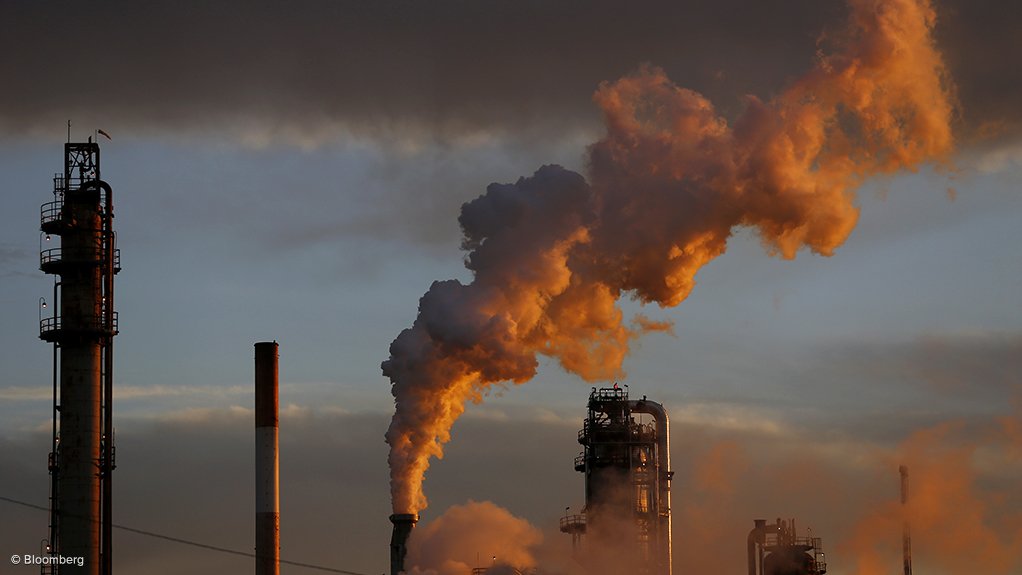88% of global fossil fuel, cement CO2 emissions linked to 117 producers
A new report, released on April 4 by InfluenceMap using the Carbon Majors database, shows that 88% of global carbon dioxide (CO2) emissions from fossil fuels and cement from 2016 through 2022 can be linked to 117 producers.
In addition, most fossil fuel companies produced more fossil fuels in the seven years after the Paris Agreement than in the seven years before the agreement’s adoption, while more than 72% of fossil fuel and cement CO2 emissions since the industrial revolution can be traced to the 122 entities in the Carbon Majors database.
The Carbon Majors database launch report quantifies the contribution of the world’s largest oil, gas, coal and cement producers to global carbon emissions, which are the primary drivers of climate change.
It shows that the majority of global CO2 emissions produced since the Paris Agreement can be traced to a small group of high emitters who are failing to slow production.
Fifty-seven of these corporate and State entities can be linked to 80% of fossil fuel and cement CO2 emissions from 2016 through 2022. Nation-State producers account for 38% of emissions in the database since the Paris Agreement, while State-owned entities account for 37% and investor-owned companies for 25%.
The Carbon Majors dataset contains emissions data from 1854 to 2022. New analysis of the dataset reveals that over 70% of global fossil fuel and cement CO2 emissions since the industrial revolution can be traced to 78 corporate and State producing entities.
Over the same period, just 19 entities contributed 50% of these CO2 emissions.
The Carbon Majors dataset was first established in 2013 by Climate Accountability Institute cofounder and director Richard Heede and will now be hosted by InfluenceMap on the Carbon Majors website.
“The Carbon Majors database is a key tool in attributing responsibility for climate change to the fossil fuel producers with the most significant role in driving global CO2 emissions.
“InfluenceMap’s new analysis shows that this group is not slowing down production, with most entities increasing production after the Paris Agreement. This research provides a crucial link in holding these energy giants to account for the consequences of their activities,” InfluenceMap programme manager Daan van Acker says.
The Carbon Majors dataset quantifies the contribution that these entities have made to global surface temperature, sea level and atmospheric CO2 rise, and seeks to establish corporate accountability for climate-related human rights violations in the Commission on Human Rights of the Philippines’ 2022 National Inquiry on Climate Change.
"The Carbon Majors research [has] transformed the landscape of climate accountability by using the fossil fuel industry's own reported production and operation figures to calculate and expose the true scale of its role in the climate crisis.
“By updating and extending that research, and making it more widely accessible and usable for researchers, decision-makers and litigators alike, InfluenceMap's new Carbon Majors database will transform that landscape yet again,” Center for International Environmental Law (CIEL) president and CEO Carroll Muffet says.
The Carbon Majors database makes it easier to document, calculate and visually demonstrate the disparity between the demands of climate change and the continued growth of oil and gas production.
“Critically, it enables us to track changes in corporate behaviour and production across discrete and clearly defined timescales that will be relevant to investors, investigators, and litigators alike. It is a vital and powerful new tool in the work toward climate action and climate accountability," Muffet says.
The Carbon Majors analysis also found that the top five investor-owned energy companies, being Chevron, ExxonMobil, bp, Shell and ConocoPhillips, are responsible for 11.1% of historical fossil fuel and cement CO2 emissions, amounting to 196 Gt of CO2.
Additionally, the analysis reveals that the top five State-owned fossil fuel-producing companies, namely Saudi Aramco, Gazprom, the National Iranian Oil Company, Coal India and Pemex, are responsible for 10.9% of historical fossil fuel and cement CO2 emissions, amounting to 194 Gt of CO2.
It was also found that coal supply since 2015 has largely shifted from investor-owned to State-owned entities. Investor-owned coal production emissions dropped by 939 Mt of CO2-equivalent (CO2e), reflecting a decrease of 27.9% from 2015 to 2022.
However, emissions from nation-State and State-owned producers grew by 2 208 Mt of CO2e and 343 Mt of CO2e between 2015 and 2022, indicating increases of 19% and 29%, respectively.
Moreover, the majority of fossil fuel companies were found to have totalled higher production levels in the seven years after the Paris Agreement than in the seven-year period before the agreement.
As many as 65% of State-owned companies and 55% of investor-owned companies show higher production in the period from 2016 to 2022 than from 2009 to 2015.
The increase in production by State- and investor-owned companies after the Paris Agreement compared to before is most prevalent in Asia. All five of the major Asian investor-owned fossil fuel companies and eight out of the ten Asian State-owned entities are linked to higher emissions from 2016 to 2022, compared with 2009 to 2015. This is primarily shaped by rising emissions from Asian coal production.
"The Carbon Majors research shows us exactly who is responsible. They are spending millions on advertising campaigns about being part of a sustainable solution, all the while continuing to invest in more fossil fuel extraction.
“These findings emphasise that, more than ever, we need our governments to stand up to these companies, and we need new international cooperation through a fossil fuel treaty to end the expansion of fossil fuels and ensure a truly just transition," Stand.earth international programme director and Fossil Fuel Non-Proliferation Treaty chairperson Tzeporah Berman says.
Comments
Press Office
Announcements
What's On
Subscribe to improve your user experience...
Option 1 (equivalent of R125 a month):
Receive a weekly copy of Creamer Media's Engineering News & Mining Weekly magazine
(print copy for those in South Africa and e-magazine for those outside of South Africa)
Receive daily email newsletters
Access to full search results
Access archive of magazine back copies
Access to Projects in Progress
Access to ONE Research Report of your choice in PDF format
Option 2 (equivalent of R375 a month):
All benefits from Option 1
PLUS
Access to Creamer Media's Research Channel Africa for ALL Research Reports, in PDF format, on various industrial and mining sectors
including Electricity; Water; Energy Transition; Hydrogen; Roads, Rail and Ports; Coal; Gold; Platinum; Battery Metals; etc.
Already a subscriber?
Forgotten your password?
Receive weekly copy of Creamer Media's Engineering News & Mining Weekly magazine (print copy for those in South Africa and e-magazine for those outside of South Africa)
➕
Recieve daily email newsletters
➕
Access to full search results
➕
Access archive of magazine back copies
➕
Access to Projects in Progress
➕
Access to ONE Research Report of your choice in PDF format
RESEARCH CHANNEL AFRICA
R4500 (equivalent of R375 a month)
SUBSCRIBEAll benefits from Option 1
➕
Access to Creamer Media's Research Channel Africa for ALL Research Reports on various industrial and mining sectors, in PDF format, including on:
Electricity
➕
Water
➕
Energy Transition
➕
Hydrogen
➕
Roads, Rail and Ports
➕
Coal
➕
Gold
➕
Platinum
➕
Battery Metals
➕
etc.
Receive all benefits from Option 1 or Option 2 delivered to numerous people at your company
➕
Multiple User names and Passwords for simultaneous log-ins
➕
Intranet integration access to all in your organisation





















